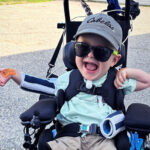A world of difference: Why Noah traveled from Florida for multiple sclerosis care
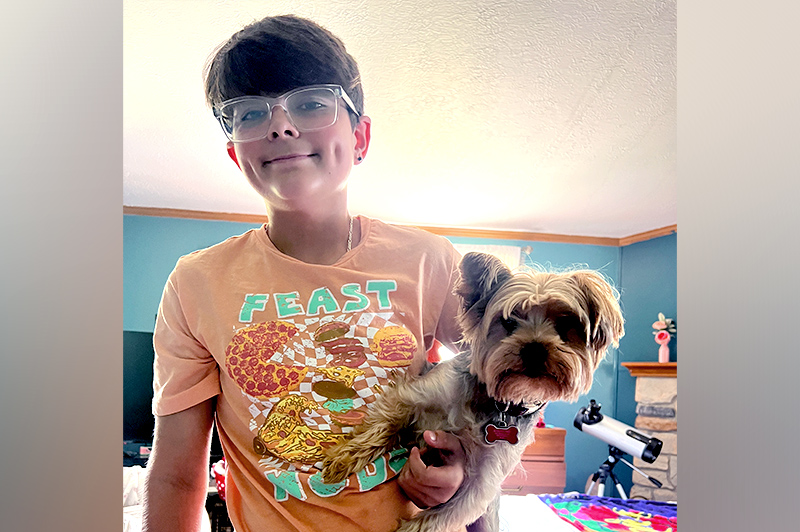
When Noah started having headaches four years ago, his mom, Jonda, initially wondered if it was a classic kid ruse. “I thought maybe he was trying to get out of doing chores,” she remembers. But when the headaches got worse and even his eyes hurt, she brought him to their local emergency room in Florida.
Although Noah, then 10, returned home with a clean bill of health, the pain didn’t improve. Soon, he started losing his balance and fell off his bike while riding to school. One morning, he woke up and couldn’t walk. “It was almost like he’d had a stroke,” says Jonda. His pediatrician recommended that they go to a nearby children’s hospital for further testing.
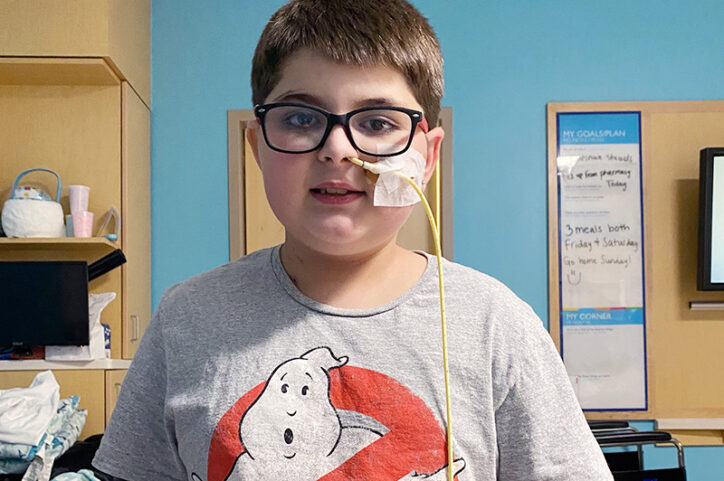
Going down the ‘rabbit hole’ of MS
Once there, doctors diagnosed Noah with acute disseminated encephalomyelitis (ADEM), an acute attack of inflammation that damages myelin, the protective sheath that covers nerve cells in the brain and spinal cord. Imaging revealed multiple lesions on his brain, but the team assured Jonda that his bout with ADEM would be “one and done.”
“They had warned us not to go down the rabbit hole of thinking he had multiple sclerosis,” says Jonda. “Of course, I went down that hole — and his symptoms and blood work really lined up with MS.”
Meanwhile, Noah’s challenges continued. That December, he spent a week in the hospital, had no mobility in one hand, and had to learn how to walk differently because his feet had turned inward. By the time he experienced a fourth relapse of ADEM, he had lost a significant amount of weight, been hospitalized several times, and ultimately had to rely on a wheelchair.
In July 2022, Jonda’s suspicions were confirmed when Noah was finally diagnosed with MS.
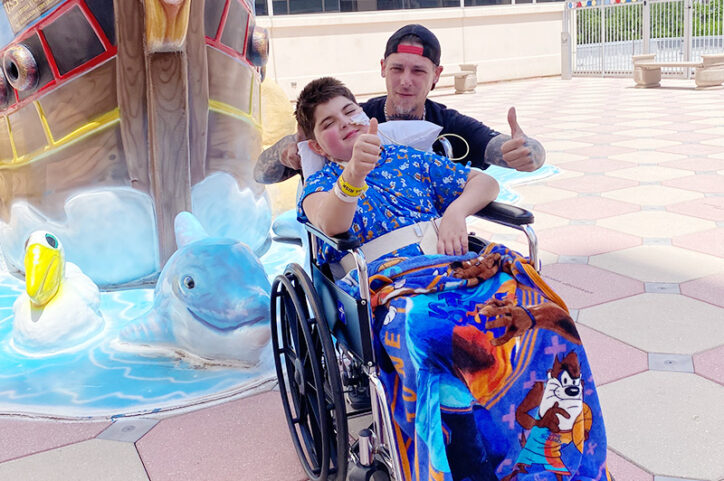
A complete 180
Once considered an “adult” condition, MS is now being diagnosed at much earlier ages. Because Noah’s neurologist in Florida wasn’t well-versed in pediatric MS, he suggested the family contact Dr. Mark Gorman and Dr. Leslie Benson, co-directors of the Neuroimmunology Center at Boston Children’s Hospital, for more specialized care.
Traveling more than 1,300 miles for care is no small feat, but Noah’s family knew immediately it would be worth the trip. “We have two other kids, but they’ve never been this sick,” says Jonda. “Boston Children’s helped us find resources like flight programs and nearby housing, which made things so much easier.”
Even easier: Aside from his initial visit in October 2023, most of Noah’s appointments have been virtual. During that time, Dr. Benson and Dr. Rebecca MacRae started him on infusions of a disease-modifying medication that helps slow the progression of MS and reduce the severity of symptoms — and the results have been life-changing.
“He’s walking again now, like he never even needed a wheelchair,” says Jonda. “It’s a complete 180.”
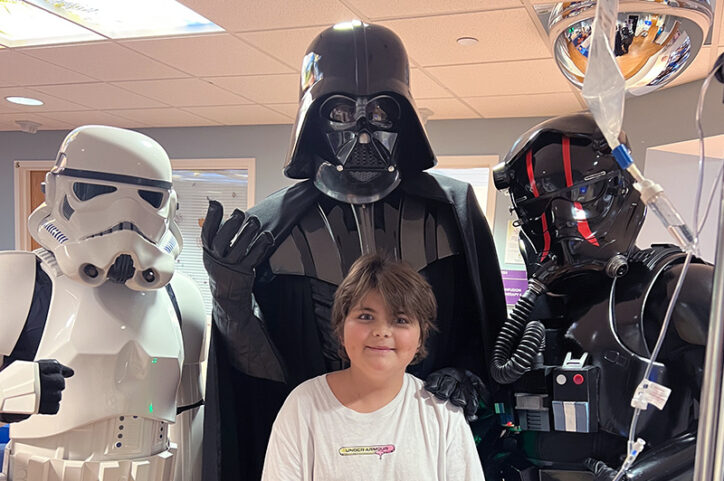
More positive changes
There have been other positive changes, too. Noah and his family have relocated to Indiana and their team in Boston has connected them with a colleague in Chicago to perform the twice-yearly infusions closer to home. The Center’s education specialist, Kitty Petty, has helped Noah navigate his return to school. After four years, he’s back to riding his bike.
And perhaps most importantly, “We got a dog!” laughs Noah, now 13. “His name is Chip.”
It’s been a journey for the whole family, but Jonda is grateful to their support system for helping along the way — and to Noah’s care team.
“If it wasn’t for Boston Children’s, I don’t know where we’d be,” says Jonda. “They’ve made a world of difference for Noah — a 100 percent difference.”
Learn more about our Neuroimmunology Center.
Related Posts :
-

After a severe case of myelitis, ‘rockstar’ Maxwell is on the move
When Maxwell Lazarz’s mother, Jennifer, tells him he’s a rockstar, he just laughs and asks her what that ...
-

No limitations: How Flora found answers for MOG antibody disease
Flora Ringler’s fifth birthday didn’t turn out as she had hoped. She and her family were vacationing in ...
-

‘They never stopped trying to figure out what was happening’: RyennAnne’s encephalitis journey
When 5-year-old RyennAnne Hurst developed a bad sore throat last summer, her doctor thought she might have strep and prescribed ...
-

“Princess June” reigns supreme over Rasmussen syndrome
What do you call a “girly” 5-year-old who adores dolls and frilly nightgowns? If you’re one of June Pelletier’...


